Finding the Right Nanny: A Guide for New Parents
Finding the Right Nanny: A Guide for New Parents

Finding the perfect nanny can feel like another impossible task between diaper changes, sleepless nights, and remembering if you've brushed your teeth. But the right nanny can be a game-changer if you're heading back to work, need extra hands, or want someone you trust with your baby so you can get a few other things done (self care included). The relief and peace of mind that come with finding the right nanny can significantly reduce the overwhelming feeling of parenting.
As a certified postpartum doula who spent over a decade as a professional nanny, I’ve seen firsthand how the right childcare
support transforms families. This guide explains how to find a nanny who fits your family's unique needs and aligns with your parenting style.
Step 1: Figure Out What Your Family Needs
Before you jump into Googling "nannies near me," take some time to get clear about what your family needs and why you're hiring extra help. Trust me, this will save you so much time (and a few headaches) down the road.
Knowing exactly what you're looking for makes the whole process less overwhelming. Whether it's figuring out hours, specific responsibilities, or what kind of personality would click with your family, this step sets you up for long-term success.
Extra Tip: Consider Future Needs
Think beyond the newborn phase. Will you need the nanny to transition into toddler care, school drop-offs, or supporting older siblings? Hiring someone who can grow with your family may save you from having to start the search again down the road.
Questions to Ask Yourself:
- What's your schedule? Do you need full-time care, part-time help, or just a few hours here and there?
- What responsibilities will your nanny have? Will they focus on baby care, handle light housekeeping, meal prep, or even school pick-ups for older siblings?
- What qualities matter most to you? Are you looking for someone who's nurturing, experienced with newborns, CPR-certified, or creative with activities?
Pro Tip: Write down a list of non-negotiables and "nice-to-haves." This list will keep your search focused and prevent you from getting swayed by someone who looks great on paper but might not match your needs.
Step 2: Start Your Search For A Newborn Nanny
Finding the right nanny shouldn't have to be a stressful and never ending search. Here are a few places I'd consider looking based on your needs:
Local Nanny Agencies
Agencies can be a great resource—they handle the vetting process for you and connect you with experienced candidates who align with your family's needs. Ask each agency about its screening process, requirements for its team (specific certifications, training, continuing education, etc.), and how it supports families and caregivers long term.
Online Platforms
Websites like
Care,
Nanny Lane, or
Sittercity are popular options for finding nannies. You can see reviews and even request background checks straight through some of these platforms. Keep in mind that these websites can feel hit-or-miss, as some nannies avoid them due to the fees. Still, they can work for families willing to put in the time to vet candidates independently or wanting to avoid going the agency route.
In addition to childcare websites, consider local Facebook babysitting and nanny groups (be extra cautious when taking this route, as anyone can join them—look for recommendations and be extra thorough with the hiring process).
Word of Mouth
Some of the best nannies are found through personal connections. Ask friends, neighbors, or even your postpartum doula for recommendations. (At Bountiful Doulas, we keep a vetted list of trusted childcare providers looking for long term work—just ask!)
Extra Tip: Know Your Local Laws
Every state has specific regulations around
household employment. In Utah, for example, nannies are considered household employees. You may need to handle payroll and taxes, so factor this into your decision-making process.
Step 3: Interviewing Your Potential Nanny And What To Ask
The interview is where you get a real sense of whether a nanny is right for your family - not just if they're qualified on paper. Interviewing them gives you a chance to learn more about their values, problem-solving skills and how they connect with your baby or children. You want someone you not only like, but can trust!
Questions to Ask A Potential Nanny:
- Experience: "What ages of children have you cared for? Do you have experience with newborns or toddlers?"
- Philosophy: "How do you approach soothing a baby? What's your take on discipline and developmental activities?"
- Scenarios: "What would you do if the baby won't stop crying? How would you handle a medical emergency?"
- Availability: "Are you open to occasional weekend hours or flexible scheduling? Are there times of the year you'll need time off?"
Deep Dive into Standards: Your Nanny's Credentials and Dedication Matter
- Certifications: Always look for current CPR and first-aid certifications. These should be non-negotiable, especially with an infant at home.
- Specialized Training: Ask about experience in sleep training, baby-led weaning, or early childhood development - whatever feels important to you.
- Problem Solving Skills: Get specific - “Can you share examples of how you’ve supported a family through challenging situations?”
- Ongoing Education: Look for nannies who enjoy furthering their education in childcare and your child's well-being. Thisu want someone who will keep your child safe and is up to date on the latest practices!
Pro Tip: Pay attention to how the nanny interacts with your baby during the interview. Their warmth and attentiveness can tell you as much as their answers.
Step 4: Don’t Skip the Background Work
Even the best interview can’t replace a thorough reference and background check.
- References: Speak to at least three previous families. Ask about reliability, punctuality, and how they handled day-to-day care and more challenging situations.
- Background Checks: Use a reputable service to screen for criminal records, driving infractions, and more.
Step 5: The Contract Is Non-Negotiable (IMO)
A
contract between you and your nanny is important for so many reasons. It protects both you and your nanny if anything were to come up and sets boundaries and expectations from the get go.
What to Include:
- Work hours, schedule, and any flexibility required.
- Duties and responsibilities (childcare, housekeeping, meal prep, etc.).
- Pay rate, overtime policies, and payment method (consider using a payroll service for ease).
- Benefits like PTO, holidays, and sick days.
- Terms for termination from both sides.
Extra Tip: Include a Trial Period
Start with a trial period of 2-4 weeks. It allows you and the nanny to ensure the arrangement is a good fit without long-term pressure.
Bonus: Don't want to draw up your own contract? We love recommending a free nanny contract from
Nanny Counsel to use when you hire a nanny, it's totally customizable and covers most industry standards!
The "Landing Zone" for Nanny Success
Once your nanny starts, set them up for success:
- Create a "daily dashboard" with emergency contacts, a basic schedule, and any preferences (e.g., screen time limits).
- Communicate openly—regular check-ins help catch any small issues before they grow. Checking in every 6-12 months can keep everyone happy.
- Celebrate their contributions: A happy nanny feels valued and is more likely to stay long-term. Don't forget yearly raises - and if you want to go the extra mile, nannies appreciate feeling seen during national nanny recognition week or their birthdays!
How a Postpartum Doula Can Help
Are you not ready to commit to a long-term nanny? A
postpartum doula might be the perfect bridge. Postpartum doulas specialize in short-term newborn care, household tasks, and helping families adjust to life with a baby.
Doulas can even help set up systems to make the transition to a nanny smoother. Whether you need sleep support, meal prep, or guidance hiring your dream nanny, we’re here to help.
FAQs
Q: What’s the difference between a postpartum doula and a nanny?
A postpartum doula is a short-term professional focused on the family’s needs after birth, offering newborn care, recovery support, and household assistance. A nanny typically provides long-term childcare focused on the child’s needs for years.
Q: Should I offer benefits to my nanny?
Yes! PTO, sick days, guaranteed hours, and holiday pay are industry standards for full-time roles. Offering competitive benefits ensures you attract the best of the best.
Q: Can a nanny help with newborn sleep routines?
Absolutely. Many nannies have experience establishing feeding and sleep schedules. Discuss your goals during the interview. If they don't have experience with newborn sleep, don't stress—ask if they'll stick to a plan with the help of one of our gentle sleep coaches!
Finding the right nanny isn’t just about checking boxes but finding someone who feels like family. With these steps—and a postpartum doula to support you during the transition—you’ll create a caregiving setup that feels seamless and supportive.
Ready for expert postpartum support while you search for the perfect nanny?
Contact Bountiful Doulas today and let’s make this transition smoother together.












